There are a lot of options out there when it comes to Digital Marketing Agencies for Home Services Businesses.
The trouble for home services business owners is that we are in a traditionally non-technical world having to hire and deal with technical people, and the technology is always changing! Installing new pipes, re-roofing a house, cleaning a carpet, or cleaning out an attic or crawl space doesn’t change a lot from year to year, but how to effectively run Google Ads or Facebook ads can change weekly or even daily!
The utter lack of communication between the business owner and digital marketing agency (caused by speaking two totally different languages and having completely different goals), leads to a breakdown in process, missed goals, poorly-aligned expectations, and ultimately disappointment, more often than not.
Plus, there is a saying in horse racing: “Ultimately, they all go lame.” The truth is that a business can outgrow an agency and need to upgrade or switch if the agency can no longer keep up with its expansion plans. There are cases where the agency outgrows the client, and then no longer pays attention to the account, getting careless over time, or simply moves on to better-paying ones.

Either way, there is a huge cost to the resulting impact. The agency leaves wreckage behind them, taking all your important inside information with them, and you pick up the pieces, trying to get access to all your accounts, and wrestling over digital assets you didn’t even know you should own.
All of this is to be avoided.
You may feel that you don’t have time to waste by sorting through their portfolios, looking at the quality of their past work, seeing what other clients are saying about them, doing research into how well they perform for clients in your industry, or finding out if they’re trustworthy and you can communicate with them effectively, but you avoiding this work can cost you big-time.
How do you know if you’re being scammed by an agency that overcharges and doesn’t deliver results? How do you know what questions to ask an agency before you hire them?
I’ve put together a quick guide full of questions you should ask your next digital marketing agency to make sure you’re getting a package that is within your budget but still utilizing the latest strategy and tactics for high-quality results.
Pricing should be clear from the start. If a digital marketing agency is unwilling to send over their pricing guide, comparable packages, or better yet, a customized and detailed proposal, it’s probably because they want to keep how they are spending your money in the dark. You should always be able to see what you’re paying for and how much each item costs.
Pricing should be based on the value they bring to the table. The worth of their services compared to directly-measurable revenue generation and ROI should dictate how much you spend on digital marketing services, not just for “marketing activities.” Having them explain how their activities directly translate into money coming in is critical.
Pricing should be based on what you need to achieve (and can afford). This may sound obvious, but it’s important that agencies don’t try and persuade clients into paying for more than they need so that they can make more money—this isn’t fair for anyone involved!
If an agency is asking for too much money upfront they might not even be able to deliver on their promise in a reasonable amount of time. A lot of things (like SEO) take a lot of time to translate into measurable results, regardless of how much money you throw at it. Similar, in the case of paid digital advertising (like Google or Facebook Ads), you can increase your budget extremely quickly in pursuit of fast results, only to “break” a campaign by oversaturating the audience or not allowing the algorithm to scale up properly to show your ad to the right audiences. This results in spending a lot of money on very poor quality leads (or no leads at all), simply out of hasty spending.
Granted, a good agency will have ways to spend your money wisely, but you need to know what their process is and how they plan on spending it.
In addition to understanding the big-picture of the overall costs, you also need to get granular on the cost of their management versus the ad spend. Some agencies bundle it together, which makes for very murky waters. Are they charging you per lead? That’s straightforward enough but can get very costly. If you pay $5,000 a month per location on Google ads, are you spending $4,000 for the management of the ads and only $1,000 for the actual lead generation (ad spend)? That’s not a good deal. A 50/50 split is common, but only makes sense when you are starting out with smaller budgets. Most respectable agencies that handle larger ad budgets for you will only charge up to 25% of the ad budget on their management fee. In other words, if you want to spend $1000 on the ad itself, your total bill to them should be around $1,250. Again, all of this is completely negotiable.
Many agencies will bundle ad management as one service in a basket of other digital marketing services. That’s fine, as long as you know what portion represents each area that they work in. If you do the simple math and realize that they are charging you $2,500 to manage a $2,500 ad budget, costing you $5,000, you need to stop right there and point it out.
Again, the amount you pay should be relative to the benefit. If it is worth it to you to pay someone a lot of money to manage a relatively small ad budget, it has to mean that they are amazing at what they do and they give you a fantastic return on your investment. In this example, you would pay $5,000 in total. They should be getting you at least enough clients in the short term (within a month) to afford the cost of the $5K, plus a reasonable profit over the longer term (within ninety days for paid ads). Depending on your gross margin, this could require new revenue of at least $10,000 to $17,000 or more.
It gets a little trickier when it comes to SEO. First, it takes longer to see results. Since there is no ad budget per se, you are only paying for labor, connections, and outsourcing costs. All kinds of things are probably outsourced by your SEO agency, including high-quality back-link building (or even just the typical listings, directories, and citations clean-up work by companies like Yext).
This work is often very time-consuming to do manually or requires great networks of relationships online, so they often just pay another company to do it. How much are they paying and how much are they charging you? You might not care to get this nitty-gritty, but you should at least be aware of the concept that the agency has fees they have to pay, and you want to be sure that their markups are reasonable.
For more detailed information about how to vet and scrutinize SEO agencies, please see my guide: “How to Evaluate Your Home Services SEO Agency… And how to know if they are worth the money you are spending on them.”
The real cost of doing business with them needs to be based on ROI. Regardless of if they charge you a monthly retainer fee, a line-itemized accumulation of fess, the pay-per-lead all-inclusive model, or pay only for measurable performance (revenue-share, commission, etc.), you’ll need to get an estimate of the revenue growth they can help provide and measure it against the cost. There is always risk in these situations, so some kind of risk-reversal guarantee is desirable (see the section on guarantees).
The bottom line is that the agency needs to break down the fee you pay them in great detail and justify it thoroughly until you understand them completely and feel comfortable with the deal.
More than anything, you want to know what value your digital marketing agency brings to the table. This includes:

The “value” doesn’t need to be only in terms of direct ROI, nor does it need to be a vague concept. By digging deeper into these questions, you’ll eventually find paydirt—or you’ll feel uneasy. If you start asking about real value, and they can give you tangible examples, you’ll know you have at least a decent chance of having a good outcome.
If they hesitate, due to a lack of experience or track record, you don’t need to immediately kick them to the curb, but you need to proceed with caution. Newer companies can represent a great value by offering you lower fees, but only if they are hell-bent on continually earning and keeping your trust via a massive amount of action and diligent hard work. Consistency is very hard to predict, but 90-days should be sufficient to test and find out if they can deliver.
Also, keep in mind that agencies are like all other companies; they have overhead, they have inconsistent labor and employees, and they tend to specialize and get good at a few things, while only being mediocre at the vast majority of digital marketing activities. They cannot escape the law of 80/20. 20% of their abilities create 80% of their results. 20% of their revenue comes from 80% of their clients… and so on and so forth.
Hence, you will find that all agencies are really only good for a few things. It doesn’t necessarily mean that you need multiple agencies (although you might, the bigger you get and the more sophisticated your marketing needs become), but it does mean that you need to find out what they are truly good at, especially if they are newer, and force them to be transparent and truthful about this. Then, once you know what specific areas of marketing they are good at, you can hire in-house for what they are not, or find another agency to add to the mix, requiring everyone to focus only on what they are great at and work together.
For example, let’s say that the agency you are thinking of hiring represents themselves as full service (which is fine). However, once you fully investigate them, you find out that they are really amazing at SEO, okay at website design, below average at PPC, and lousy at social media.

This is critical information because you can now get them to be honest with you about what they are really great at and what they are lacking and then you can even ask them to give you a referral to someone who is great at social media marketing. If they are truly honest and run their business with integrity, they will not desperately try to capture your social media marketing business for themselves, and either give you a referral or show you who they are going to subcontract for it. The goal here is not to fire them before they start. The goal is not to restrict them from making money. Even if they subcontract the work out (just like general contractors do with their subs when working on a house), they should be open and honest about it. The real goal is transparency and full disclosure.
You know this example company is great at SEO, so you hire them for that. This gives you the option to hire them for certain things, trim the fat of their proposed budget to exclude the things they are not exceptional at, and hire somebody else for those weaknesses, or allow them to do it, but not overcharge you. Again, what you don’t want is them charging you a huge fee that covers everything, even if they will not be doing it or will be doing it poorly. One point of contact is okay, but you have to trust them. It’s the same thing as if you hired a plumber to build your entire house. He might have a general contractor’s license and legally be able to do it, but is he the right man for the job? Perhaps, but usually not. If he is, you should know exactly who he is putting in charge of the electrical, not to mention the project management of the whole job, and all the other details. The same goes for digital marketing agencies.
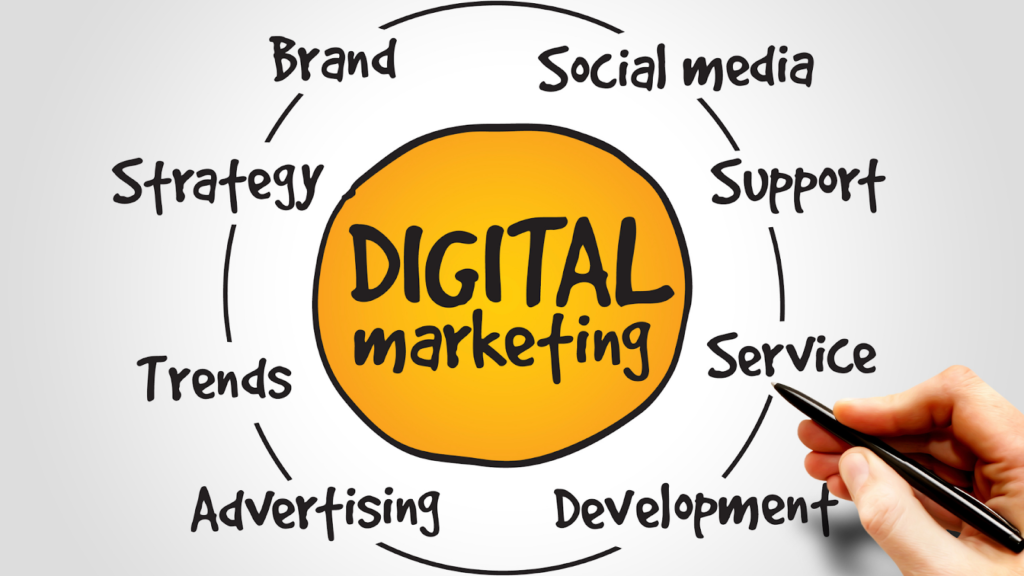
Once you fully understand the value that the particular agency brings (and what they don’t bring), you’ll be ahead of nearly every other service business owner in the marketplace. The vast majority of the business owners out there have no clue that the digital marketing world works much like the contracting world when it comes to how they get work done and the vast number of different types of work are required in agency work. It’s physically impossible for one agency to be the best at everything, and to truly be a great “generalist” they need to be good at delegation, sub-contracting, and standing behind and vouching for their referrals. If they claim to be the one-stop shop, they better be able to prove it to you. Otherwise, you are likely to have multiple agencies for different areas of marketing, and different vendors, all combined with in-house employees.
Having a complex system for marketing is required to be competitive. We all want simplicity, but being lazy and trying to avoid complexity is the easiest way for competitors to mimic and knock off your marketing, and destroy your competitive advantage. It’s best to embrace the complexity, and that requires building a marketing team, not just relying on one person or agency to do it all for you.
The real value is not just what the agency brings, but what the total combined ability of what your entire marketing team can accomplish for your business. That’s where the real results and ROI come from.
If you run into trouble integrating and collaborating between multiple agencies, vendors, and in-house employees, you might want to hire a Fractional CMO.
A guarantee is a promise that, if the service provider meets their obligations, they will refund or give you an additional benefit.
The purpose of guaranteeing a digital marketing agency’s performance is to offer some level of protection against poor performance. This can be a great option for clients who are not confident that their agency will do what it says it will do—particularly if your business is at risk because of poor results.
Often not considered in services, a warranty is another way of looking at it. A warranty is a written guarantee, issued to the purchaser of an article by its manufacturer, promising to repair or replace it if necessary within a specified period of time.
You may think it strange that I brought up the word warranty. I do this to purposefully catch your attention, and you can do the same thing with your potential agency. Everyone has had experience with having to return a faulty part or item bought off of Amazon or at a local department store. We just expect it as a natural occurrence and part of the business. However, when it comes to service businesses, we can’t (or most likely don’t want to) replace faulty “parts” in the form of a human being screwing up the job.
What I am suggesting is that you try to draw the connection between the concept of a warranty and a guarantee, and then challenge your agency with the idea that they have to be held accountable if you are going to be giving them a lot of money over time. Now, in the digital marketing world, almost nobody is going to guarantee their work. They will try to avoid guaranteeing anything at all.
In fact, this is such a touchy subject that all agencies are going to squirm a bit with even the mention of guarantees. To be fair, they can’t really guarantee that you will get sales, or even leads, since much of what they do is influential and correlates to success, but is not causative. In other words, they can try to get Google to work for you, but they are not Google. Nobody controls Google other than Google itself. They also can’t control your customers. They can merely influence them.
An interesting business model of a few agencies is the pay-per-lead model. Although this might seem innovative, it is nothing more than a lead generation company pretending to be an agency.
A lead generation company is essentially just another Home Advisor/Angie’s List, Yelp, Thumbtack, or Neighborhood App, but without the brand recognition or one powerful website. They typically set up mini-sites, landing pages, and the like, often on their own domains and hosted away from your primary site, driving ads from Google or Facebook to squeeze pages and generating contact information that they send to you and either sell multiple times to other companies as well or charge you more to sell it only to you.

The difference between a lead generation company and an agency is really about who owns the marketing assets. If they own all the websites, systems, and processes, and simply deliver the lead to you on a silver platter, then they are a lead gen company. The more you use them, and the more other companies in your niche use them, the more powerful they become.
An agency is one that represents you, has a fiduciary relationship and responsibility to you, and simply manages your assets. You own the marketing systems, websites, funnels, etc.
So the lead generation company is unique in that you do get some form of guarantee for performance. You don’t pay if you don’t get leads. However, I’ve never seen one that will fully and completely guarantee the performance of the lead into sale conversion ratio. If you find one, that would be a powerful guarantee. Most of the time, you pay for the leads, regardless of the quality and regardless of their closing ratio or final project value.
There may be a few rare exceptions to the rule that agencies and lead generation companies won’t guarantee anything. I have on occasion seen agencies that really do offer amazing guarantees. Something like, “If you don’t increase your revenue by more than you pay us, we’ll pay the difference.” This is extremely rare, so don’t be disappointed just because your agency isn’t offering something like this. If you find one of these, you’ll want to take note and you probably want to use them (or test them out).
In spite of agencies not offering ROI-based guarantees, they can and should offer something one-step removed from performance-based guarantees. They can guarantee that they will provide excellent service, communicate quickly and effectively, be super-responsive, make changes and fix problems as they come up.
These softer guarantees are not just fluff, and you should take note of the details. You will be able to hold them to these behavioral guarantees early in the relationship as you test them out. For example, if they guarantee fast communication, you can ask them how fast. If they say 48 hours or better, then you can always point out any time that they fail to do so, and thereby hold them strictly accountable. This is better than no guarantees at all.
This question is a little more specific than the previous ones. It’s important because it will help solve some of the most common problems marketers face when trying to find an agency. I covered the concept of an agency having strengths and weaknesses in the section on value above, but it deserves a deeper analysis.
Assuming the agency legitimately has a niche specialty should count for some positive points toward earning your business. Somebody with specialized industry knowledge and experience is always an advantage. Some say that “marketing is marketing” and that it is a transferable skill from one industry to another, but there are nuances that each niche has that you don’t want to have to be responsible for teaching them. They should be the ones teaching you and you should only need to give them the information about how your particular business differs from the norm. Otherwise, you will be spending a lot of time teaching them how to do their business at best, and gambling with your money at worst.
If you’re looking for a Digital Marketing Agency that specializes in a specific industry or field, such as “home services,” “contractors,” or perhaps even more specific, such as plumbing companies, HVAC, Attic & Crawl Space Cleaning, Insulation, Landscaping, Excavation, etc., then this is the key question that needs answering before deciding who to hire.
There are more and more agencies that say they specialize in a particular business vertical or niche (or even micro-niche). This might be a good sign for you, but not always. You have to check their track record, reviews, and references. They may simply be saying this because they can’t compete with other agencies otherwise and have little experience.
This is not to say that a generalized agency can’t help you as well. Many mid-sized agencies offer a great level of service, and have a great track record in a particular niche, even though they handle many clients outside of that niche. Again, check the references.
For example, there is an SEO agency I often refer to my home services clients that is a generalist agency. If you go look at the home page of their website, you’ll see they help all kinds of business verticals and niches within verticals. You’ll see mention of contractors and home services, but you’ll also see they help law firms, RV dealerships, and a whole host of other businesses.

However, they developed a very strong reputation, with a good number of case studies and testimonials specifically in home services. They have entire sections of their website and marketing materials and funnels built out to try to impress you and get your business. They have done the work of specializing, they just didn’t make the decision to say that they only specialize in home services businesses. This may sound like a subtlety, but it helps explain why some agencies say they only do one type of business, but they aren’t necessarily the best just because they no longer work with dentists or med spas and only work with plumbers. Again, asking all these questions and doing your due diligence is the best way to look under the hood and know what you are really buying. Be careful of judging a book by its cover.
Another important thing to consider about specialization is often not even mentioned in discussions like this. Not only do you want to know if the agency focuses on a particular niche, but you also want to know what they are best at within the world of marketing. In other words, whether they are a niche-specific agency or a generalist agency, none of them are equally good at all marketing disciplines.
What is often overlooked by home service business owners is the fact that marketing is a very broad subject and umbrella term that covers a lot of ground. There is advertising, which is a subset of marketing. There is digital versus traditional marketing. There is online and offline. There are funnels and websites and Google Ads and social media, content writing and SEO, sale copywriting, and on and on and on. It is physically impossible for one agency to have mastered everything. They do have a good handle on something, and you need to know what that is and more importantly, what they do not have a good handle on.
Again, you might need to hire an in-house person (a marketing assistant is the lowest rung position, a marketing manager is a bit higher up and a director or CMO would be the highest level). This person can fill in the gaps and be boots on the ground for you to establish your team. Alternatively, you might need multiple agencies. It may make more sense to have one agency for SEO and one for PPC, for example, as they are commonly needed for home service businesses for consistent lead generation across the board.
It’s important to know as much as possible about your digital agency before you sign up. This probably goes without saying, but what might not be as obvious is that your agency should know as much about your business as possible before they sign you as well!
A lot of people just want an agency that will take care of everything so they can focus on other things. But this isn’t the best way to approach things, because when you don’t know what to expect and how much value you can get, it can be easy for agencies to take advantage of clients who are not familiar with their role in the digital marketing world. More often the case is that the agency is so excited to land you as a new client that they don’t bother to stop and ask if you are a good fit for their agency.
In order for the agency to really understand the nuances of your business, so that you can one day have the trust and confidence to let them do their job without you having to micromanage them, there needs to be a certain level of interaction. Typically, this means a heck of a lot of communication for at least the first thirty days, if not ninety. Unless they have worked with many other businesses exactly like yours, they should be interviewing you (or someone else extremely knowledgeable about your operation) and asking a lot of questions. They should be taking notes and possibly recording interviews.
Later, after they get their initial research, there should be some sort of regular cadence for meetings with you or your staff to stay on the same page.

The key to getting your money’s worth out of the agency is to make sure there is the right quality and quantity of engagement with you. This means you need to interact with them (or you need to hire a Fractional CMO to do it for you). I have seen many times when an owner or CEO of a business hires a low-level admin or marketing assistant and then abdicates all responsibilities related to interaction with the agency to this poorly-prepared and poorly motivated underling.
This is not for you.
Granted, you may have the goal of not being involved in the day-to-day management of your marketing department or agencies. That is a fine goal. It is usually better to be working on your business instead of in it all the time. However, unless and until you have someone in-house that can keep your agencies in check, you’ll need to be the one to manage them.
Remember, nobody cares as much about your money as you do. Your agencies aren’t even a part of your company. As an outside vendors, they may be hard workers, but their loyalty is usually limited to their paycheck, and even then they have other clients. They aren’t thinking about your business all the time like you are.
With this being said, you want to see a clear picture of success, including the scheduling of consistent check-ins, communication, meetings, reporting, and ultimately proven accountability to KPIs and marketing deliverables.
You should ask your agency for a portfolio of case studies. Case studies are an excellent way to see how the agency has helped other clients and how they’re likely to help you.
A case study is not just a review or testimonial. It likely includes a testimonial, but it is more than that. A well-written case study will detail the challenges faced by the client, what solutions were implemented and at what cost, and how those solutions helped achieve results in terms of ROI or time savings.
This is also a good way to determine if you can trust that your agency understands your business model and goals enough to be able to deliver on them. It shows their expertise in their field, their ability to deliver on time, and more importantly, it shows whether or not they have delivered results for their clients before!
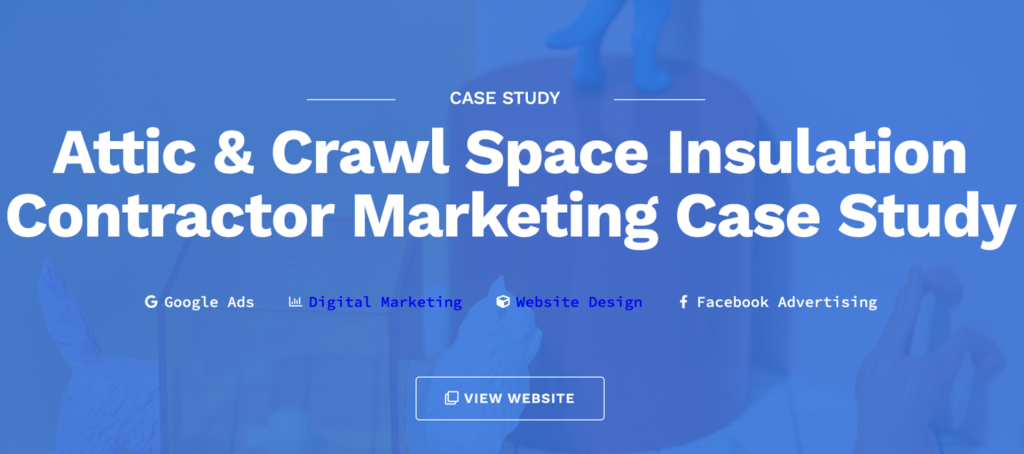
Obviously, case studies that come from businesses just like yours are desirable, and you should look for them. However, don’t think that businesses from other industries or niches are not useful. Sometimes, the problems that the agencies solved can show you their ability to adapt and overcome challenges, and it may also show you that the agency has the creative capacity to borrow ideas from other industries and bring them over to yours. This is a great advantage, since most businesses are stuck with blinders on and only do what everyone else is doing in their industry, essentially copying and pasting and never innovating. You want an agency that not only understands your industry but can bring new ideas to the table.
You should ask your digital agency if they offer analytics reporting and data proof of work.
You’re the one paying for their services, so you should be able to see the work that is being done on your behalf and why. It’s important for your agency to be able to communicate with you about what they are doing, how long it will take to implement, and why.
There are many different ways that an agency can provide reporting. Sometimes they will just use the raw tools, like Google Analytics, and simply refer you to the standard information. This is not necessarily a bad thing, but they should at least be willing to help interpret it for you and dive into any areas that you need clarification on.
They may use software for the marketing agency world, such as Agency Analytics. This software is essentially an aggregation of other sources (like Google Analytics and Google Ads) and then displays it on a convenient dashboard. They have to pay for their accounts, so they likely will not want to pay for it unless you are using it. There are also other companies that provide these things and white-label the solution for the agency.
Regardless, you need to have transparency when it comes to results. Proof of work is a different set of data and is equally important. It means that there is a log somewhere of the actions they took on your website, or in an ad account. It means that you can look at any time and find out exactly what they did that month (or week, day, etc.). Many agencies do not provide this kind of accountability, but I would ask for it regardless. If they don’t do it yet, you can make them better (and more reliable) if you get them to start offering it.

Customization is another issue that is often overlooked. You likely have industry-specific software running your business. This includes scheduling, job estimates, invoicing, tracking, and perhaps a CRM system integrated. The biggest issue with these software applications is that they often do not completely integrate with marketing so that you can determine ROI by marketing channel.
For example, your agency will likely be running campaigns with various ad sets in Google ads that promote a particular service you offer. They have all kinds of data on the marketing side, but it’s almost useless if your in-house software doesn’t “talk” with Google Ads. In other words, you get clicks and form-fills, and calls, but then you aren’t sure what campaign they came from. Even with call-tracking and people listening to call recordings, the best they can do is say, “We think this came from Google Ads.”
That’s pretty lame reporting if you ask me. It probably came from Google Ads, but which campaign? What landing page? What ad set? What keywords? What is working here, exactly?
This leads down the path of manual labor with spreadsheets and comparing data points and is a huge investment of time and effort.
Obviously, the best way to produce a quality, comprehensive lead tracking system is to have an API. API is the acronym for Application Programming Interface, which is a software intermediary that allows two applications to talk to each other. Some software will do this and some don’t. I have a client whose contractor software had no intention of offering it, and they hired an outside firm to develop all the reporting for a reasonable fee. It wasn’t cheap, but when comparing the in-house payroll costs of doing everything manually, it made sense.
One way or another, you need to be able to track where your marketing dollars are being spent. You need to know at least the basics, like cost per lead and cost per sale, by channel and source, not just in an overall vague sense.
When looking at a digital marketing agency’s results, you should be looking for what we call “measurable” results. This means that the agency is showing you actual leads and ROAS (Return On Ad Spend) data from their campaigns and not just impressions or clicks. It also means that the data is being shown to your entire marketing team so that everyone can see how things are going on a regular basis and be able to adjust their work accordingly.
When looking for measurable results, it’s important to know whether they are short-term or long-term. For example, if an agency has sent out an email blast campaign with a goal of generating leads within 30 days and they have only been running it for 10 days then it would be hard to tell what kind of impact the campaign will have on your business in the long run—but if they can show you some success within those first 10 days then there’s hope. The main point here is that each campaign should have measurable timelines when you can expect to see something happen to move the needle.
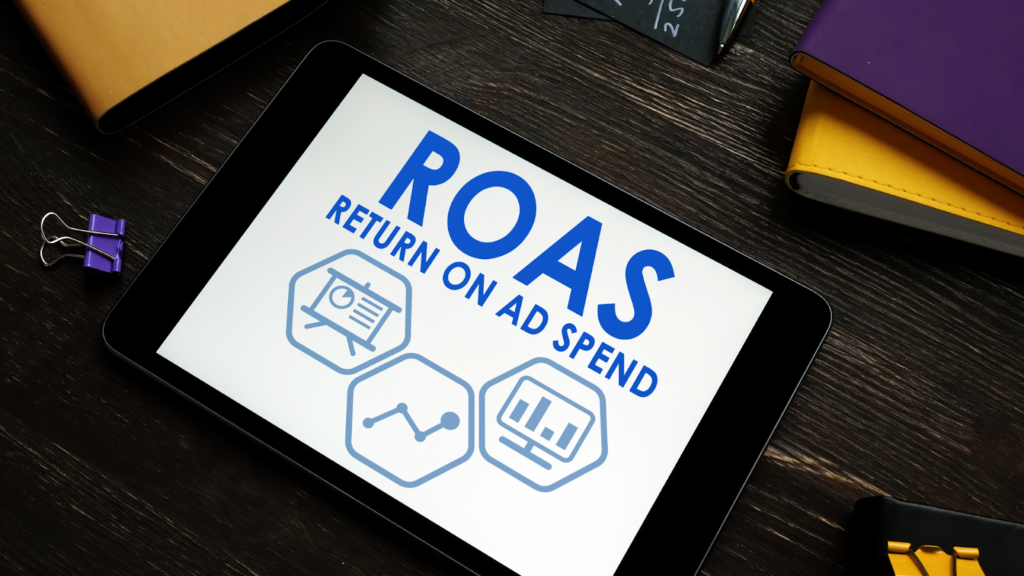
When it comes to PPC, it really doesn’t take that long for the “algorithm to adjust,” although it is commonly said by agencies that it takes a lot of time. PPC should be getting results FAST. That’s the entire point of it. There are people searching for a solution, you put your ad in front of them, and they either click or they don’t. They are bottom-of-the-funnel prospects, so if the campaign fails to get any leads, you’ll know pretty quick. It doesn’t take ninety days. You should know in a matter of a week or two tops.
When it comes to SEO and organic search efforts, on the other hand, it does take time. Nobody controls Google other than Google, so at best your efforts will show results in months, not weeks. In some cases, it can take a year. Are you ready to be patient if it means a positive ROI?
Ultimately, you are looking for both short-term and long-term results combined so you can win both the sprint of lead generation and the marathon of marketing. Your agency should be able to give you reasonable expectations on both levels, showing you how they will win the game in every possible way.
This line of questioning follows a common theme; you want to get the specifics and the details of how they will accomplish the mission.
Some variations on this line of questioning are:
Now, if you are not personally very sophisticated as a marketer, you might be a little reticent to ask these questions, because any one of them may cause the agency to throw a lot of jargon at you and try to overwhelm you with their hyper-nerd musings.
However, you don’t need to know every tactic or technical approach. What you are doing is testing their preparedness and ability to prove to you that they really have a plan and that they really know their stuff. If they have a lot of experience, they will have SOPs and rote methods that reliably get results. Even if they are customizing everything to your business and situation, they should at least have some tried-and-true frameworks that help them determine what specific techniques to use and when.
You should hear them go through their list of ideas (hopefully ones they have tested many times before), and it should give you confidence that they know their stuff. If they haven’t done something before, they should have at least done something very similar to the campaign they are about to test for you. If they haven’t done anything like it ever before, they are gambling with your money and you need to be very cautious about working with them.

You are also looking for differences between what they will do for you and what they do for other clients as well as what other agencies do for businesses like yours.
It’s okay if much of the tactics are the same. Sometimes what works is just what works, regardless of the business. However, there should be nuances that pertain only to your offer or your specific branding or approach that you know aren’t being used by everyone else. In other words, you need your own unique selling proposition and the agency should have a firm grasp of that.
In the best-case scenario, the agency has a very clear path, including an overarching strategy based on experience, fleshed out with specific tactics that are proven, but modified just enough to fit your business like a glove. It should be a combination of what normally works, plus some bespoke tailoring. The agency should be able to demonstrate all of this by walking you through their plan.
If you still feel a bit uneasy going through tactics with your agency, then you might want to hire a Fractional CMO who knows exactly what the agency is talking about and can determine if they truly do know what they are talking about as well as if it aligns with the best strategy for you.
This last question may seem unnecessary, since if you got this far in a discussion with your agency, you will likely already know whether or not they can speak to you like a normal human being or not.
However, it is still important to ask the question, because it allows you to ascertain whether they will put forth extra effor to explain themselves not only to you, but to your internal marketing team.
One of the biggest unforeseen problems with working with agencies is that they often end up in a silo or black box abyss that nobody in your company fully understands. Most CEOs and owners are fine, as long as they keep getting their desired results (more leads, etc.). However, when (not if) leads slow down, or the quality of the leads drops, then all of a sudden the owners are usually in a panic. If they haven’t been fully understanding what the agency is doing, the phone call devolves into “Why aren’t I getting leads?!”
This kind of conversation is really stupid. You aren’t helping the agency and you aren’t helping yourself. You are just pointing out blame. True, it might be the agencies negligence, but more often than not it is one of countless other factors, including, but not limited to, the economy, the seasons, the competition’s marketing changes, Google going through another permutation of algorithmic change, new creative being needed, the recent local weather patterns, and so on and so forth.

Your marketing agency should be good at what they do, but they can’t be good at everything related to your business (that’s your job), and they also don’t have crystal balls, control the local economy, or have any influence on the weather.
Therefore, knowing whether or not the agency can think strategically and then communicate it effectively with you is critical to your ability to make decisions. If they stumble when you ask this question and if they simply answer with empty platitudes, like “we’ll try our best” and can’t give you examples of how they will be breaking down their ideas into concepts you can easily understand, then you will never have a clear picture of what they are doing. There will always be a distance between you and you won’t be able to help them with your innate understanding of the inner workings of your business that they desperately need to understand.
If they are good at communicating with you, however, you can develop a partnership with them that will deliver better results, helps them to get better (and you), and might even last for years.
Small business owners need to know more about what they’re buying before hiring a digital marketing company.
The importance of getting the right digital marketing company is not always obvious to small business owners. Many don’t know what questions to ask, or even how to find a good one.
That’s why you need to ask these critical questions before you hire your next Digital Marketing Agency and sign a contract. These questions will help ensure that you get the results you want and avoid being ripped off, overcharged, and left with a giant mess if they leave you or you fire them.
We hope that these questions will help you find a digital marketing company that is the right fit for your business.
Please feel free to reach out if there’s anything else we can do to assist you in finding the best partner for your needs or if you would like an estimate on our services.
Through streamlined marketing systems, I help successful home services and other small businesses scale and expand into multiple new territories and markets.
Grow faster with a Fractional Chief Marketing Officer (CMO) specializing in Home Services Trades & Contractor businesses. I have also helped entrepreneurs in diverse niches and verticals, including Dentists, Law Firms, and E-Commerce companies.
Let us create, manage and deploy a marketing strategy for customers and employee recruiting to help you reach your goals faster.
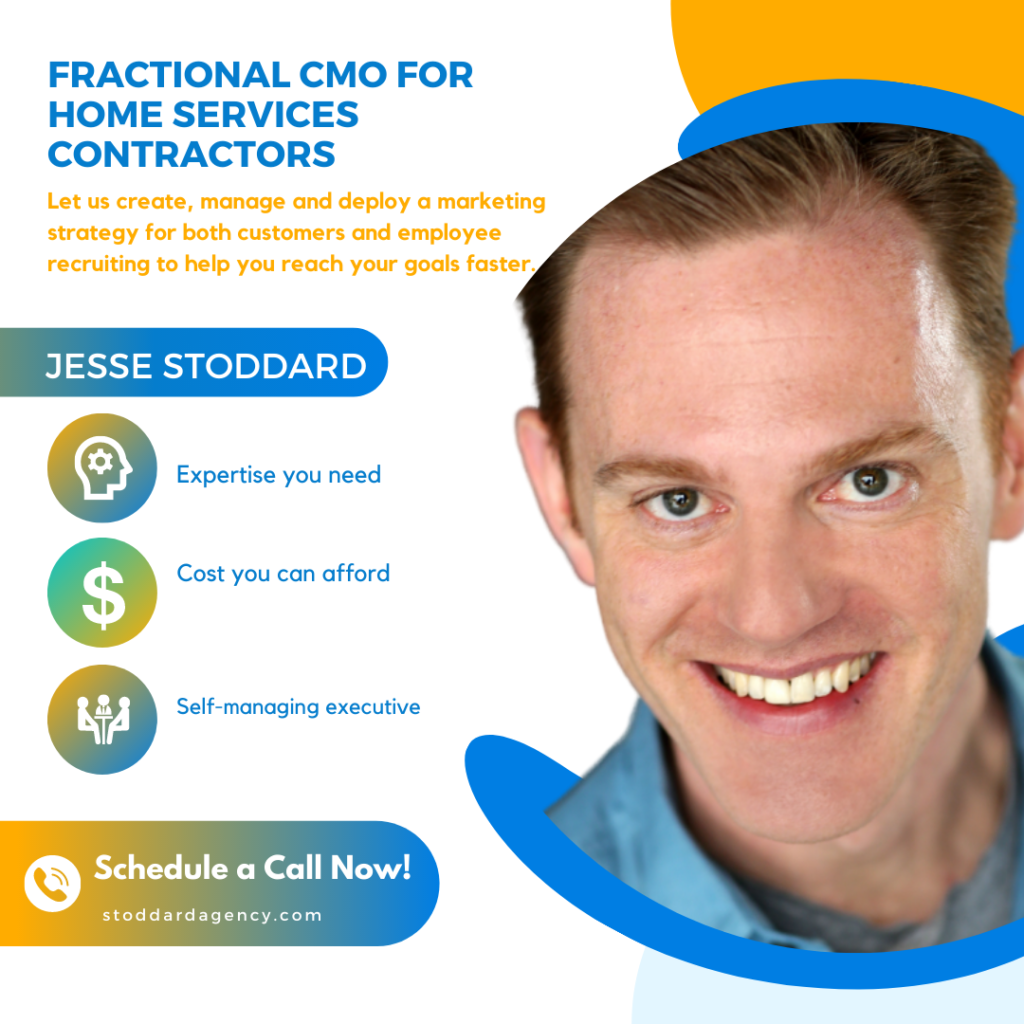
I’d love to help your Home Services company build a profitable marketing department. I help Home Services companies create and execute a winning marketing strategy designed to reach their goals.

A fractional CMO is the part-time executive who runs your marketing team and is responsible for all of your marketing outcomes.
A great fractional CMO will find out what your goals are and what has worked so far and create a comprehensive marketing plan to achieve those goals.
Along the way, they will make sure your team is performing well and in good spirits. They’ll also put in the systems and processes to make your marketing a reliable asset to your company.
That’s what I do for Home Services Contractors looking to scale. I’d love to hear what your goals are—and help you reach them with marketing that gets results.
To Learn More, go to www.GetLeadsFirst.com.
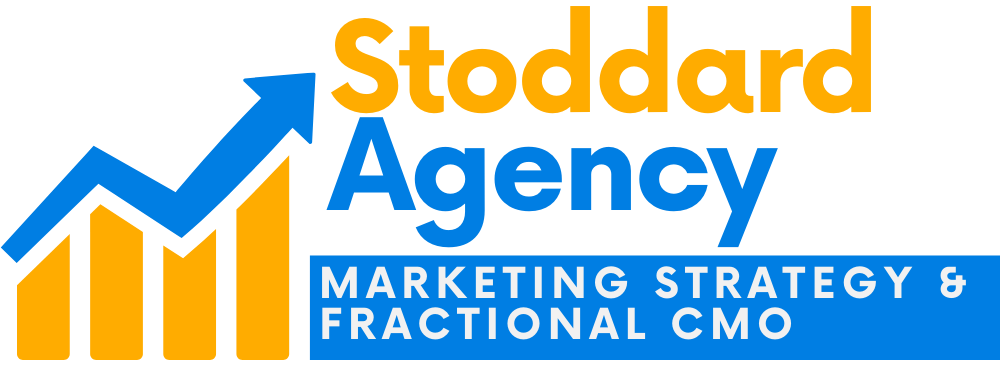
The Stoddard Agency is a full-service marketing strategy consulting firm and digital marketing agency. Hire Jesse Stoddard as the Fractional CMO of Your Growth Business Today.